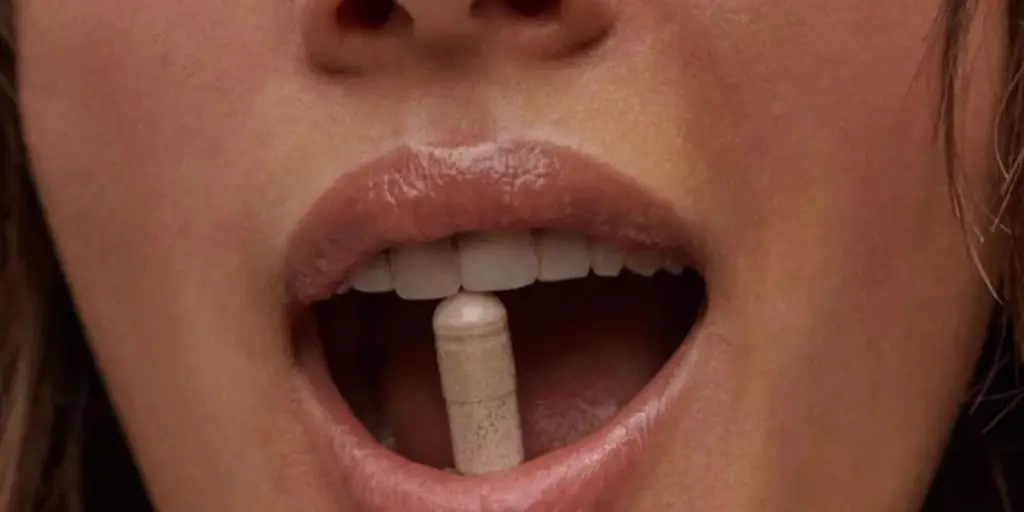As consumers take a more holistic approach to self-care, beauty supplements are shifting from niche to normal. Targeted solutions that tackle the skin effects of everyday stressors are appealing to wider mainstream and Gen Z audiences. This article explores key trends driving the growth.
Table of Contents:
1. Supplements augment skincare routines
2. Ingestible suncare for year-round protection
3. Creative formats draw new consumers
4. Intimate care fosters health and happiness
5. Stress and skin: The mind-body link
1. Supplements augment skincare routines
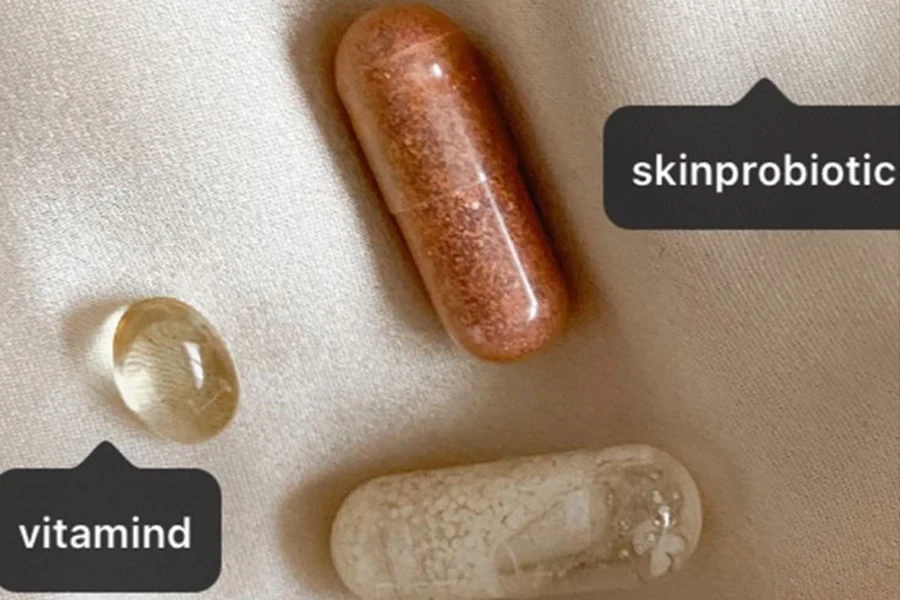
Beauty supplements are shifting from a niche add-on to a normal part of skincare and wellness routines. No longer viewed as an extra step for the ultra-committed, ingestibles now have mainstream appeal as consumers take a more holistic, inside-out approach to beauty and self-care.
This is being driven by several interconnected trends. With growing awareness of the gut-skin axis and how nutrition impacts skin health, supplements are now seen as a logical extension of topical skincare. The COVID-19 pandemic also accelerated usage as consumers sought new wellness solutions amid lockdowns. And above all, modern lifestyles are taking their toll – consumers are tackling more daily stress, and looking to supplements to mitigate the effects.
Brands now have a real opportunity to leverage supplements to complement their skincare offerings. But education remains vital – consumers need clear messaging that ingestibles augment topical care rather than replace it. Fun formats and targeted, stress-busting formulas also help to draw new audiences. Overall though, supplements now interlock with beauty routines for many consumers seeking to care for their whole self – inside and out.
2. Ingestible suncare for year-round protection
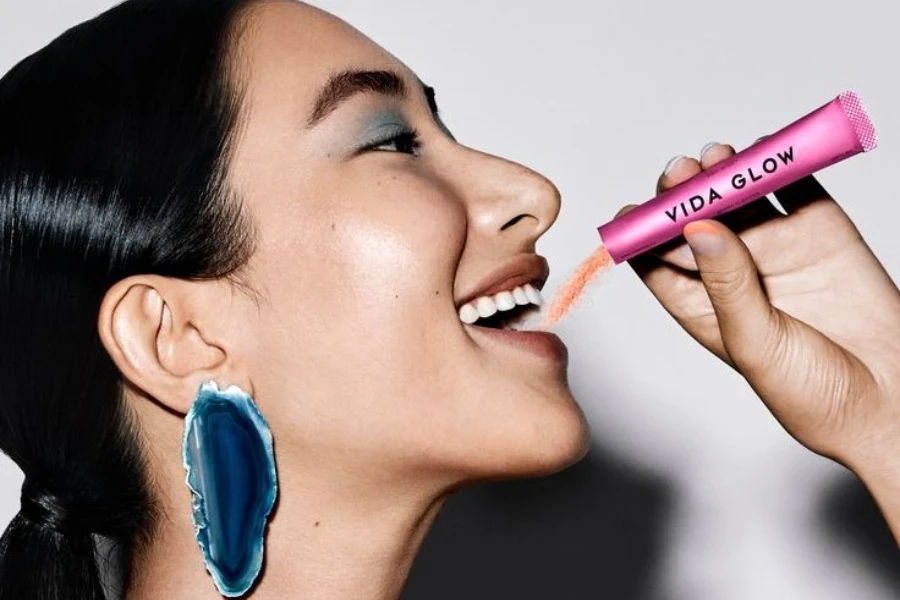
UV damage was once seen as a seasonal skincare concern, but with climate change extending sunny days and consumers more informed about sun risks, suncare has become a daily essential. While mineral sunscreens form an important protective barrier, mess-free suncare supplements are emerging as a convenient way to provide additional defense against sensitivity and premature aging.
Ingestible suncare works by supporting the skin’s natural mechanisms. Supplements like ORBIS’s Sun Period contain antioxidants that protect skin cells and DNA against UV damage. Others like Wild Nutrition’s Natural Glow stimulate melanin production for a lasting golden glow. Next-generation ingredients even shield against issues like sun allergies – Dr. Barbara Sturm’s oral supplement Sun Skin helps prevent reactions like prickly heat.
Suncare supplements should augment sun protection routines, not replace them – education on safe sun practices is still vital. But for consumers looking for a low-maintenance backup to topical SPF, ingestibles represent an easy way to defend skin health year-round. And the category has room to grow as climate change continues to intensify.
3. Creative formats draw new consumers
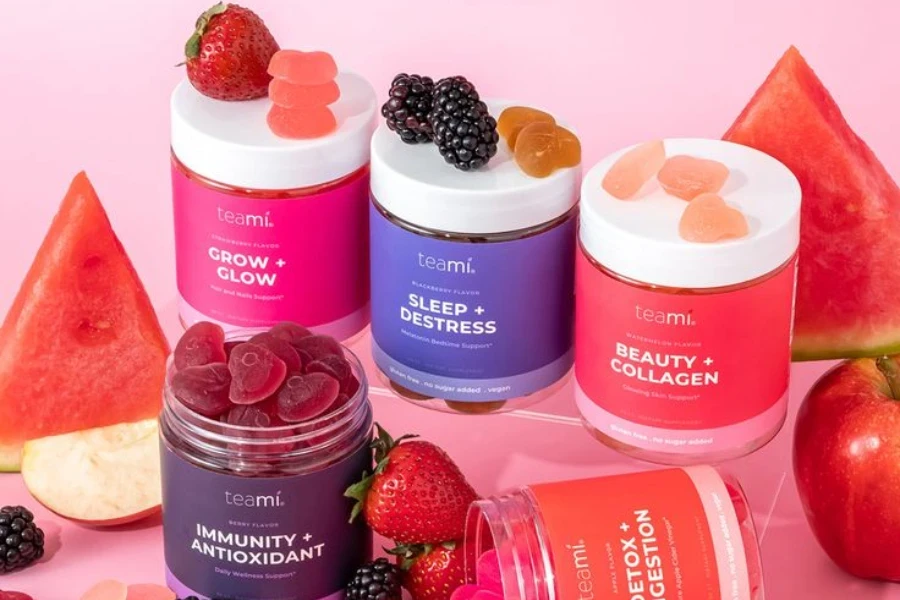
While capsules and powders once dominated beauty supplements, creative new formats like gummies and jellies are helping attract younger, mainstream audiences. With their playful, candy-like appeal and lower commitment bar, these innovative delivery methods are less intimidating for supplement newbies.
East Asian brands have pioneered jellied supplements packed with collagen and hyaluronic acid. Singapore’s Avance says their jelly format appeals to hesitant younger consumers, turning a functional health product into a tasty treat. The US is now following suit – personalized brand Nourished recently added sour gummy “SkinStacks” to make supplements more fun.
Even quicker-acting options are emerging – edible dissolvable films and chewable tabs provide a hit of nutrients on the go. And transdermal vitamin patches allow consumers to “signal” self-care to others. With designs ranging from lightning bolts to mushrooms, these visible statements help remove the stigma around supplements.
While ingestible beauty remains relatively new, playful formats dispel reservations some consumers may harbor. And by turning self-care into a joyful, low-stakes experience, they allow a wider audience to explore the category.
4. Intimate care fosters health and happiness
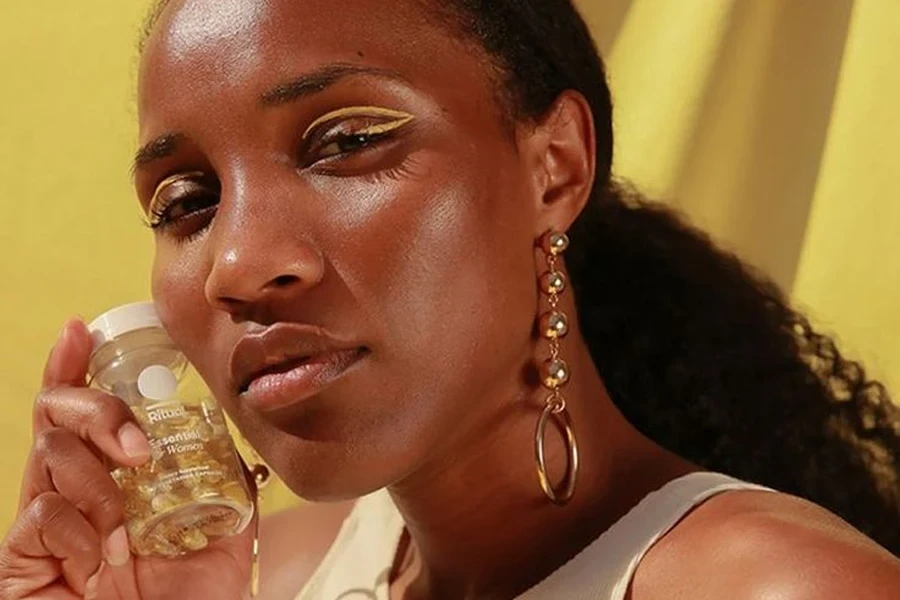
An emerging subset of supplements aims to enhance sexual wellness and vaginal health. As intimate care sheds longstanding taboos, consumers are exploring products tailored to needs downstairs – both for confidence in the bedroom and general well-being.
Stress and hormonal shifts impact vaginal ecology, causing conditions like irritating yeast infections. Probiotic supplements can restore balance, as with April’s VJJ Hero capsules formulated for the vulva and vagina. Libido-lifting supplements are also taking off – Dame’s Desire gummies and Maude’s nightly supplement both use natural aphrodisiacs to increase arousal and satisfaction.
The intimate care category offers holistic beauty opportunities too. ZitStika’s Mood Food gummies tackle monthly acne flares by soothing PMS symptoms and regulating hormones. While Equi London’s menopause formula aids issues like hormonal aging and vaginal dryness during this transition.
So supplements supporting underserved intimate needs represent huge potential as consumers embrace sexual self-care. Those offering both reproductive and aesthetic benefits also align with the rising psychodermatology trend. Partnering with medical experts helps validate claims in this sensitive space while increasing trust.
5. Stress and skin: The mind-body link
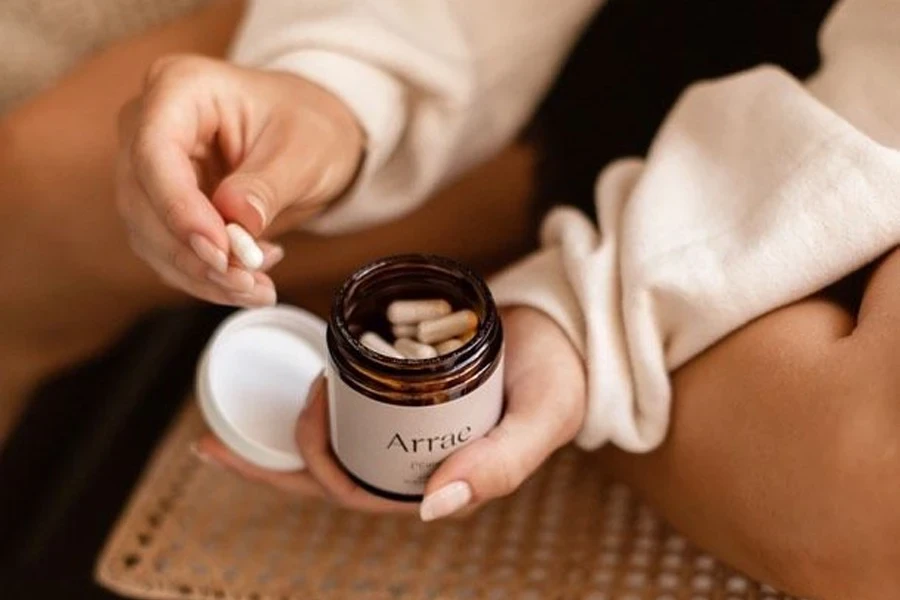
Modern lifestyles are taking a toll on mental well-being, and consumers are making the connection between stress and its effects on the skin. This has led to rising interest in psychodermatology products that care for both the mind and complexion.
Chronic stress contributes to various skin issues like accelerated aging, acne, eczema, and hair loss. It impacts hormone regulation and interrupts cellular renewal processes. So beauty supplements are evolving to address root causes by supporting the nervous system and stress response.
Nootropic supplements feature adaptogens and calming amino acids to manage cortisol spikes from daily pressures. Herbar’s Skin Pearls ward off damage from fatigue and anxiety this way while improving mood. Targeted solutions like Veracity’s cortisol-lowering formula also help consumers cope with modern demands.
Stress-busting supplements ultimately bridge the mind-body link increasingly acknowledged in dermatology circles. As lifestyles show no signs of slowing, consumers need multi-pronged self-care that attends to both mental and skin health through this psychodermatology approach.
Conclusion
With targeted benefits that complement topical routines and bridge the mind-skin connection, beauty supplements are gaining mass appeal as consumers embrace holistic self-care. Their ability to tackle the skin impacts of modern stress makes them well-placed for continued growth. The supplement space will only expand as consumers prioritize self-care and wellbeing. Retailers should invest now in education, personalization, and format innovation are best positioned to own this fast-moving space.
